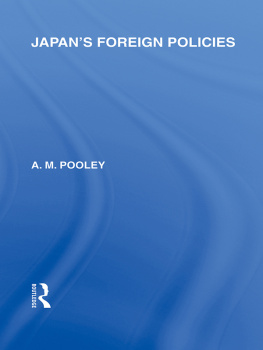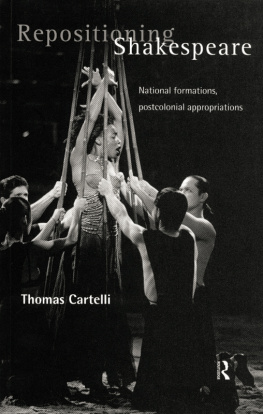
The Global Repositioning of Japanese Religions
The Global Repositioning of Japanese Religions: An integrated approach explores how Japanese religions respond to the relativizing effects of globalization, thereby repositioning themselves as global players. Organized around concrete case studies focusing on the engagement of Japanese Buddhism, Shinto, and several new religious movements in areas such as ecology, inter-religious dialogue, and politics, this book shows that the globalization of Japanese religions cannot be explained simply in terms of worldwide institutional expansion. Rather, it is a complex phenomenon conditioned by a set of pervasive factors: changes in consciousness, the perception of affinities and resonances at the systemic and cultural levels, processes of decontextualization, and a wide range of power issues including the re-enactment of cultural chauvinism.
The author investigates these dynamics systematically with attention to broader theoretical questions, cross-cultural similarities, the definition of religion, and the perils of ethnocentrism, in order to develop his Global Repositioning model, which constitutes an integrated approach to the study of Japanese religions under globalization.
An empirically grounded and theoretically informed study of the effects of global trends on local religions, this book will appeal to scholars and students with interests in globalization, religious studies, Japanese studies, Hawaii, sociology, anthropology, and ecology.
Ugo Dess is Adjunct Professor at the Institute for the Study of Religion at the University of Leipzig, Germany, and Honorary Research Associate at the University of Cape Town, South Africa. He is the author of Japanese Religions and Globalization (2013) and Ethics and Society in Contemporary Shin Buddhism (2007), and editor of The Social Dimension of Shin Buddhism (2010).
Global Connections
Series Editor: Robert Holton, Trinity College, Dublin
Global Connections builds on the multi-dimensional and continuously expanding interest in globalization, focusing on connectedness and providing accessible, concrete studies across a broad range of areas such as social and cultural life, and economic, political and technological activities. Interdisciplinary in approach, the series moves beyond abstract generalities and stereotypes: Global is considered in the broadest sense of the word, embracing connections between different nations, regions and localities, including activities that are trans-national, and trans-local in scope; connections refers to movements of people, ideas, resources, and all forms of communication as well as the opportunities and constraints faced in making, engaging with, and sometimes resisting globalization.
For a full list of titles in this series, please visit www.routledge.com/series/ASHSER1306
Titles in the series include:
Global Culture
Consciousness and Connectivity
Roland Robertson and Didem Buhari-Gulmez
Eurocentrism at the Margins
Encounters, Critics and Going Beyond
Lutfi Sunar
Glocal Pharma
International Brands and the Imagination of Local Masculinity
Ericka Johnson and Ebba Sjgren
The Socio-Political Practice of Human Rights
Between the Universal and the Particular
Kiran Kaur Grewal
The Global Repositioning of Japanese Religions
An Integrated Approach
Ugo Dess
The Global Repositioning of Japanese Religions
An integrated approach
Ugo Dess
First published 2017
by Routledge
2 Park Square, Milton Park, Abingdon, Oxon OX14 4RN
and by Routledge
711 Third Avenue, New York, NY 10017
Routledge is an imprint of the Taylor & Francis Group, an informa business
2017 Ugo Dess
The right of Ugo Dess to be identified as author of this work has been asserted by him in accordance with sections 77 and 78 of the Copyright, Designs and Patents Act 1988.
All rights reserved. No part of this book may be reprinted or reproduced or utilised in any form or by any electronic, mechanical, or other means, now known or hereafter invented, including photocopying and recording, or in any information storage or retrieval system, without permission in writing from the publishers.
Trademark notice: Product or corporate names may be trademarks or registered trademarks, and are used only for identification and explanation without intent to infringe.
British Library Cataloguing in Publication Data
A catalogue record for this book is available from the British Library
Library of Congress Cataloging-in-Publication Data
Names: Dess, Ugo, author.
Title: The global repositioning of Japanese religions : an integrated approach / Ugo Dess.
Description: New York : Routledge, 2016. | Includes bibliographical references and index.
Identifiers: LCCN 2016004024 | ISBN 9781472480798 (hardback) | ISBN 9781315557601 (ebook)
Subjects: LCSH: JapanReligion. | GlobalizationReligious aspects.
Classification: LCC BL2209 .D47 2016 | DDC 200.952dc23
LC record available at http://lccn.loc.gov/2016004024
ISBN: 978-1-4724-8079-8 (hbk)
ISBN: 978-1-315-55760-1 (ebk)
Typeset in Times New Roman
by Apex CoVantage, LLC
Contents
This study was funded by the German Research Foundation (DFG) through the research project Japanese Religions in the Context of Globalization and Secularization at the Institute for the Study of Religion, University of Leipzig (March 2012September 2015). This would not have been possible without the support of Prof. Christoph Kleine, chair of the study of religion and head of the same institute. During this period of research, I have benefitted from the hospitality and support of other institutions in Japan, Hawaii, and South Africa. In this connection, I wish to extend my gratitude to Prof. Shimazono Susumu from the Department of Religious Studies at Tokyo University (AprilMay 2012), and to Prof. Dennis Hirota from Rykoku University (MayJune 2012) for the invitations as Visiting Scholar; to Bishop Eric Matsumoto and Rev. Kevin Kuniyuki for the time spent as Scholar in Residence at the Buddhist Study Center of the Hawaii Kyodan (FebruaryJune 2013) and for their precious help during my fieldwork; to Prof. Kohara Katsuhiro for facilitating my stay at the Center for Interdisciplinary Study of Monotheistic Religions, Dshisha University (September 2013August 2014); and to professors Abdulkader Tayob and Sadyya Shaikh, who have hosted me as Honorary Research Associate at the Department of Religious Studies, University of Cape Town (September 2014present).
I am greatly indebted to professors Christoph Kleine, Galen Amstutz, Fujiwara Satoko, James Mark Shield, Kohara Katsuhiro, Cristina Rocha, George Tanabe, and John Breen for kindly reading the manuscript, or parts of it, and providing their detailed and invaluable feedback. Needless to say, all remaining errors and inaccuracies are mine alone. Moreover, I would like to thank Rev. Kawamoto Kichi and Rev. Fujita Kichir of the Ch Academic Research Institute, and Osaka Kazumasa and Lee Saho for their precious support at the Rissh Kseikai headquarters in Tokyo; professors Eish Nasu and Inoue Yoshiyuki for facilitating my research at Rykoku University and the Honganji-ha headquarters, and Rev. Kiribayashi Sanmi for his help at the International Center; Prof. Fujimoto Kiyohiko and Rev. Tomatsu Yoshiharu for their kind collaboration at the Jdosh Research Institute in Tokyo; Rev. Okuwaki Toshiomi and Idogawa Yukito for their help at the moto and Ska Gakkai headquarters, respectively; Rev. Tatsuo Muneto, Rev. Thomas Okano, Rev. Chikai Yosemori, Rev. Earl Ikeda, Rev. Ai Hironaka, Alan Goto, Marj and Joel Determan, Miles Okumura, Lynn Higashi, Glenn Hamamura, Jamie Itokazu, Jake Chang, Jerry and Rose Broughton, Fred and Nancy Nonaka, Mel Hayase, Al Bloom, Jane Iida, and Raymond Takiue of the Hawaii Kyodan; Kurihara Masami; professors John Nelson, Jrn Borup, and still others for their inspiring book reviews of my previous monograph on Japanese religions and globalization; Andrea Brigaglia and other colleagues at the Department of Religious Studies, University of Cape Town, for providing valuable suggestions along the way; Neil Jordan of Ashgate for his continuous support in the production of the book; an anonymous reviewer for helpful suggestions; and Pamela Bertram for her careful editing work. So many people have contributed to the making of this book that is not possible to list all of them. I apologize for any that have been omitted.






